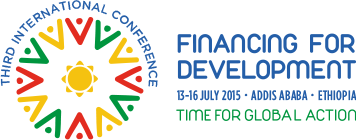by Jomo Sundaram
26 June 2015
Six years of strong global economic growth preceded the 2008 financial crisis. The ongoing and lasting impacts of the crisis reflect the unsustainability of growth in that period.
This was a period in which developing countries were financing consumption in developed countries by holding reserves in the latter’s currencies. As pointed out in UN reports then, such a situation in which the poor are financing consumption in rich countries was clearly unsustainable and would end with painful consequences.
As world leaders gather soon in Addis Ababa, it is important to consider actions that will safeguard the sustainable development agenda to be proclaimed in New York in September.
In Monterrey, Mexico, in 2002, a deal on Financing for Development was made following the 9/11 tragedy. Developing countries took responsibility to improve their macroeconomic management while developed countries committed to inaugurate a genuine partnership on aid, alleviate debt distress, and to ensure a global economy supportive of investment, growth and equity.
If anything, developments following the crisis in 2008 have underscored the economic interdependence of rich and poor countries. Events in recent months have proven that “every country for itself” economic policies are self-defeating. This is part of why strengthening multilateral economic cooperation is so critical.
The agreements underlying the Financing for Development framework must set a firm, universal platform in which countries, rich and poor, can expand multilateral economic cooperation. This agreement has to be revised and updated, with the backdrop of economic crisis and recognition of the broader responsibilities implied by the post-2015 sustainable development agenda, summed up by the concept of ‘common but differentiated responsibility’.
In the forthcoming agreement that will emanate from the high-level Addis Ababa conference, delegates must negotiate in good faith and in the spirit of solidarity to achieve real progress on key issues. Progress in establishing predictable and equitable mechanisms out of debt distress for developing — and developed — countries will provide a fairer debt restructuring framework than what has been implied by the different treatment of Greek and Ukrainian public debt.
Improving the ability of developing countries to harness and channel their domestically generated resources for domestic investment through more effective cooperative actions against illicit capital flows and tax evasion is also important. Progress can also be made in installing a true partnership between developed and developing countries through aid programs which genuinely respond to national priorities and avoid unreasonable donor conditionalities.
As the challenges of finding resources to combat poverty, hunger and climate change are daunting, world leaders should consider — even at this time of shrinking resources — cooperative and innovative ways of raising additional finance for development – such as taxes on airline tickets or auctioning pollution permits.
The Addis Ababa agreement should also make progress in improving the voices of all developing countries, especially those that are most affected by the consequences of economic policies, in policy-making in the institutions of global economic governance. Ensuring greater accountability of institutions and those who control them is important to avoid economic unsustainability.
A deep sense of unease and disappointment about the mechanisms of global economic governance has grown over recent decades. Without improving their accountability and credibility, this distrust can only deepen in the years to come.
The agreements that will emanate from the Addis Ababa meeting next month will test whether the global community is up to the task. The international community must take advantage of the unique opportunity offered by the Addis Ababa Financing for Development conference to provide lasting solutions to ongoing macroeconomic, financial, tax cooperation and debt restructuring challenges.

